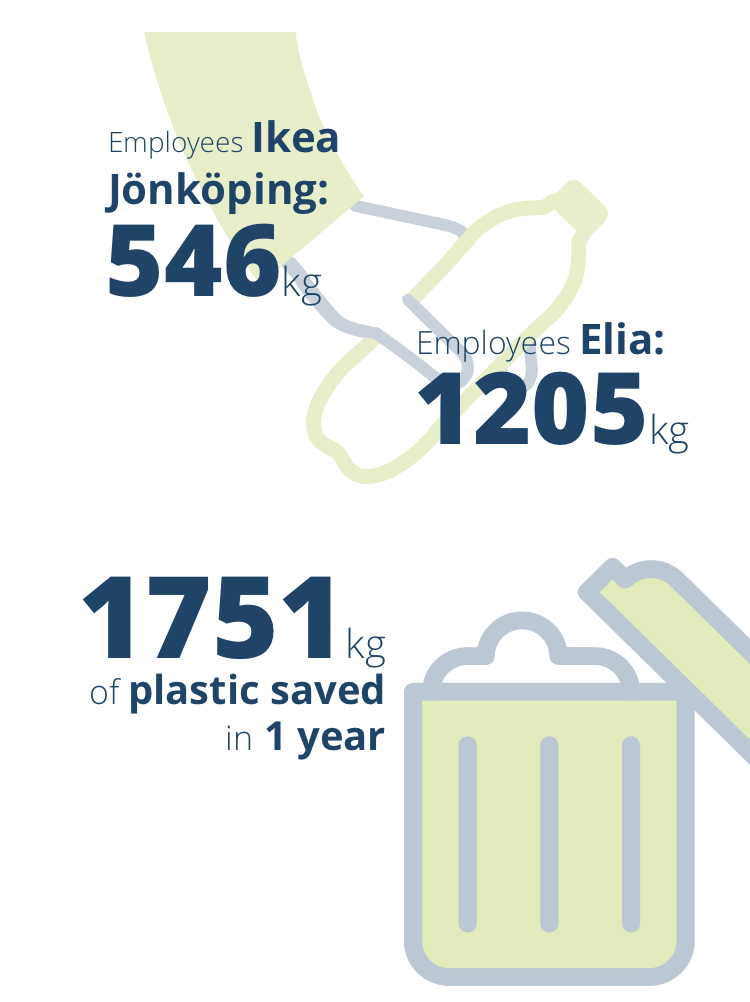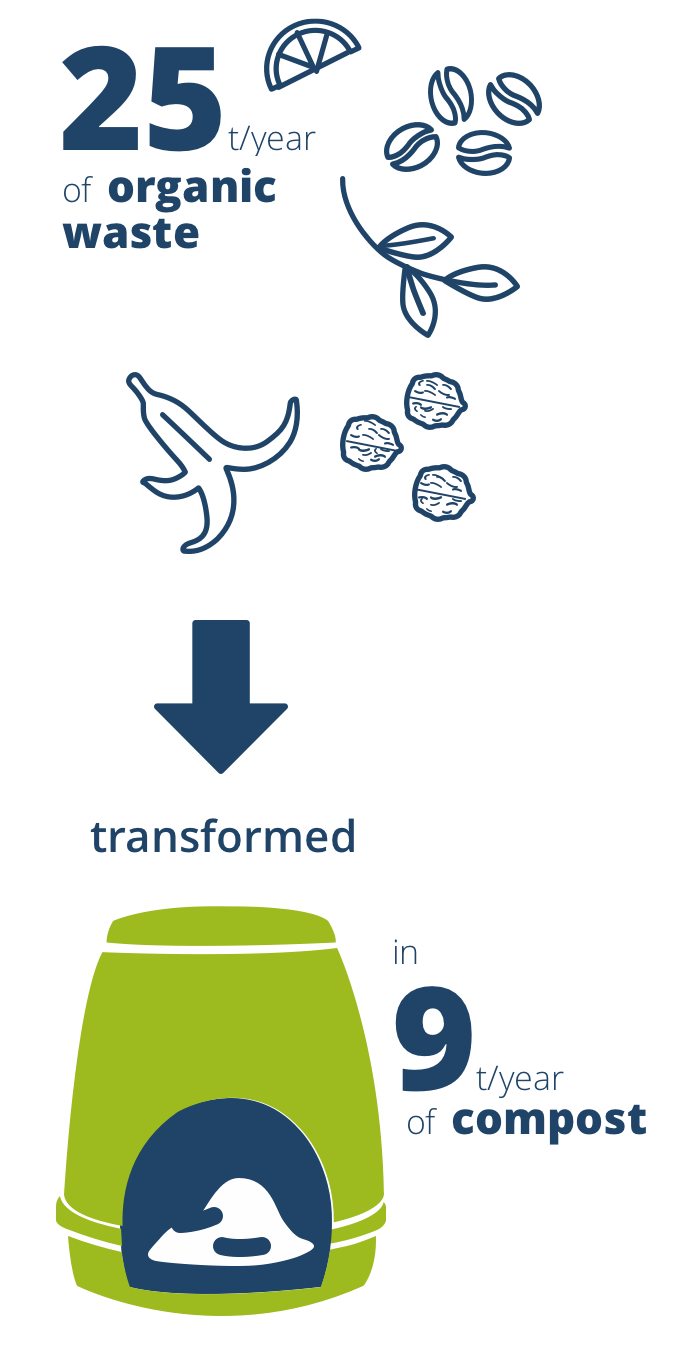You’re smart if you...
use reusable dishes
at work.
How it works?
Keep a ceramic mug on the office desk instead of using disposable cups. If you have lunch at work, bring containers from home, or use cardboard or palm leaf plates.
By making more ecological choices you can contribute to reducing the production of plastic waste: disposable dishes are among the 10 products that represent 70% of the total waste in the seas.
How it works?
Keep a ceramic mug on the office desk instead of using disposable cups. If you have lunch at work, bring containers from home, or use cardboard or palm leaf plates.
By making more ecological choices you can contribute to reducing the production of plastic waste: disposable dishes are among the 10 products that represent 70% of the total waste in the seas.
IKEA and Elia enterprises


There are several companies that are committed to reduce the usage of disposable dishes. The Belgian company Elia has encouraged its employees to use reusable cups and glasses. At the IKEA store in Jönköping employees use reusable dishes that they sell right at the store.
The Swedish company also offers customers thematic breakfasts dedicated to waste reduction.
sources: Stiftelsen IMIT: The Case of IKEA, Elia - Who are we,

Your city is smart if...
has community composters which produce natural fertilizer from organic waste.
How it works?
A community composter is a small system used to accumulate organic residues from green areas, as well as food waste (fruit and vegetables).
Following a shredding and turning processes, the waste is converted into compost. This recycled product is an excellent fertilizer capable of improving the chemical and physical characteristics of the soil.

Community composter, Favignana


As part of the “EcoInnovazione Sicilia” project, the Municipality of Favignana has installed a community composting plant.
The composter is a modern wet waste treatment system with the capacity to treat about 25 tons/year of organic waste, and supply 25 families with high quality fertilizer.
sources: Enea - Progetto Ecoinnovazione Sicilia, http://www.itacanotizie.it


